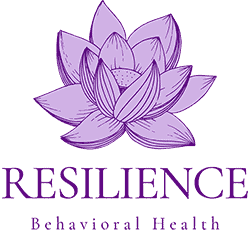Coping with alcohol withdrawal can be challenging, but with the right support and resources, individuals can navigate this process successfully. Inpatient detox and outpatient services are crucial components of managing alcohol withdrawal and promoting long-term recovery. Contact Resilience Behavioral Health today at (888)-401-1179 to help you or a loved one cope with alcohol withdrawals.
Seek Professional Help
When coping with alcohol withdrawal, it is essential to seek professional help. Utilizing an inpatient detox program provides a safe and controlled environment for individuals to undergo withdrawal. Inpatient facilities have medical staff available around the clock to monitor and manage withdrawal symptoms effectively. These programs offer a structured approach that includes medical interventions, counseling, and support groups.

Inpatient Detox Assists with Coping with Alcohol Withdrawals
During inpatient detox, individuals receive medications to alleviate withdrawal symptoms, such as anxiety, nausea, and tremors. These medications, administered under medical supervision, help ease discomfort and reduce the risk of severe complications. In addition to medical support, inpatient detox programs provide therapeutic interventions to address the psychological aspects of alcohol dependence. This comprehensive approach enhances the individual’s coping mechanisms and equips them with the necessary skills for sustained recovery.
Outpatient Treatment for Coping with Alcohol Withdrawals
Outpatient services play a vital role in helping individuals cope with alcohol withdrawal in the long term. Through regular therapy sessions, individuals can address underlying emotional and psychological issues that may contribute to alcohol dependence. They learn effective coping mechanisms to manage cravings, triggers, and stressors, reducing the risk of relapse.
During outpatient treatment, individuals also benefit from peer support groups. These groups create a sense of community and provide a safe space for individuals to share their experiences, challenges, and successes. Connecting with others who have gone through similar struggles can be incredibly empowering and helps individuals realize they are not alone in their journey.
Self Care for Alcohol Withdrawals
Alongside professional support, there are several self-care strategies individuals can utilize while coping with alcohol withdrawal. These strategies help manage withdrawal symptoms and promote overall well-being. Engaging in regular physical exercise, maintaining a balanced diet, and prioritizing adequate sleep can significantly improve one’s physical and mental state during withdrawal.
Finding healthy outlets for stress and emotions is another important aspect of coping with alcohol withdrawal. Engaging in activities such as mindfulness, meditation, yoga, or hobbies can provide a positive distraction and promote relaxation. It is also crucial to establish a strong support network of friends, family, or support groups who can provide encouragement and understanding throughout the recovery process.
Avoiding Triggers
Furthermore, it is essential to avoid triggers and environments associated with alcohol use during withdrawal. This may involve temporarily distancing oneself from social settings where alcohol is prevalent or avoiding individuals who enable or encourage alcohol consumption. Creating a safe and supportive environment is key to successfully coping with alcohol withdrawal.
Coping with alcohol withdrawal necessitates professional help and ongoing support. Utilizing an inpatient detox program ensures a safe and supervised withdrawal process. Transitioning to outpatient services after detox provides continued care, therapy, and relapse prevention strategies. Alongside professional assistance, self-care strategies, such as regular exercise, healthy eating, and stress management, contribute to a successful withdrawal experience. Building a strong support network and avoiding triggers are essential for long-term recovery. By incorporating these approaches, individuals can effectively cope with alcohol withdrawal and move towards a healthier, alcohol-free life. Contact us now at (888)-401-1179 to help you or a loved one.


